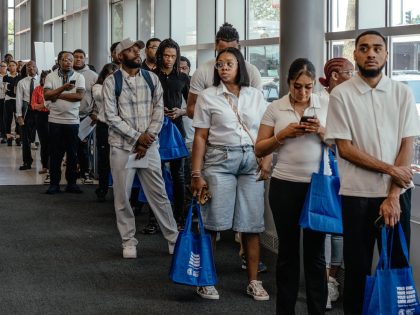
Trump Tips the Scales in Honduras
Donald Trump’s meddling in Honduras’s national election aims to return the disgraced party of the narcotrafficking ex-president Juan Orlando Hernández to power.
Page 1 of 5Next
Doug Henwood edits Left Business Observer and is the host of Behind the News. His latest book is My Turn.

Donald Trump’s meddling in Honduras’s national election aims to return the disgraced party of the narcotrafficking ex-president Juan Orlando Hernández to power.

We’re heading into what could be a rough economic patch with the worst leadership imaginable.

It’s not just a figure of speech to say tech titans are indifferent to humanity. From Peter Thiel to Elon Musk, many are adherents of a worldview that envisions humans being replaced by digital post-humans and sees this as progress.

The American economy seems headed in the opposite direction of the “golden age” Donald Trump promised in his inaugural address.

Donald Trump’s Big Beautiful Bill is an ugly policy that will punish the poorest, worsen inequality, and blow up the national debt.

John Maynard Keynes warned that when real investment becomes the by-product of speculation, the result is often disaster. But it’s hard to tell where one ends and the other begins.

Donald Trump once said that under him, we would “get tired of winning.” As the United States sees credit downgrades, deep budget cuts, and potential fiscal crises, the wins are pretty hard to find.

Exit polls from 2016 to 2024 reveal surprising shifts among voters, undermining liberal tropes about racism and patriarchy driving Trump support. It’s time for new theories about America’s political divides.

Simply put, Donald Trump owes his reelection to inflation and to the fact that the Biden administration did little to address the problem in a way that helped working-class families.

What kind of economic policy could we expect from a second Trump term?

Servers and other tipped workers desperately need better pay. Donald Trump’s blurted-out proposal not to tax tips, now copied by Kamala Harris, isn’t the way to achieve it.

Any political party that claims to be concerned with the rule of law should be using the recent International Court of Justice ruling to demand an end to the occupation and Israeli’s bloody, unlawful conduct in Gaza and across Palestine.

The Democratic Party, and the US political system as a whole, is a very strange beast.

UAW Region 9a leader Brandon Mancilla says in an interview with Jacobin that he and his union are not impressed with Republicans’ supposed pro-worker turn — and he explains what a real progressive, working-class agenda would look like.

In recent decades, structural changes in the US economy have dispersed workers across workplaces and geographic areas. Labor’s decline can’t be reversed without addressing this new reality.

Old-money WASPs once ruled America with an air of clannish exclusivity. Then the economic crises of the 1970s upended their world, opening the corporate floodgates to new-money barbarians — and replacing elite social norms with wanton money lust.

Consumer confidence is up, and inflation is down. But will the economy improve enough by November to buoy Biden’s flagging reelection prospects?

Private equity, now a major presence in the US economic landscape, has been booming since the 2008 financial crisis. Its roots lie in the rise of the corporation at the turn of the century and the shareholder revolution of the 1980s.

Despite an apparent upsurge in labor militancy, unions made no gains in their share of the workforce last year. Something needs to change — and fast.

The Biden economy’s defenders claim it is delivering big gains to workers. But people are still feeling pain in their wallets and the rich are the ones benefiting the most.